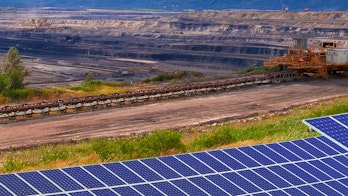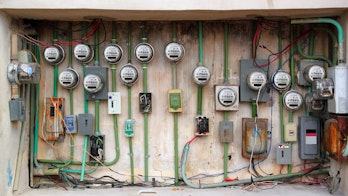People-Centred Clean Energy Transitions
Putting people and inclusivity at the centre of all clean energy transitions
Background
Putting people, and inclusivity, at the centre of all clean energy transitions not only improves people’s lives, but is also key to successful implementation of energy and climate policies.
The IEA’s people-centred clean energy transitions programme supports governments to ensure their clean energy transition strategies are truly fair and inclusive, with a focus on skills, decent jobs, worker protection, social and economic development, equality, social inclusion and fairness, while engaging people as active participants.
The programme builds on the work of the Global Commission on People-Centred Clean Energy Transitions, an independent panel of 30 members convened by the IEA Executive Director to produce a series of actionable recommendations in advance of COP26 in 2021.
The programme covers four work areas listed below.
Work areas
Convening
Mobilising diverse stakeholders from and beyond traditional energy and climate domains is core to the programme. The IEA Clean Energy Labour Council brings together representatives of the world’s most important national trade unions and confederations, the IEA Gender Advisory Council facilitates the exchange of best practices between IEA Family governments on gender equality and inclusion, and the People-Centred Clean Energy Transitions webinar series, with 1-2 webinars organised per month with key international experts, explores relevant topics such as citizen engagement, skills development, social inclusion etc.
Best practices
The programme aims to facilitate best practice knowledge sharing and learning on the key themes laid out by the Recommendations of the Global Commission on People-Centred Clean Energy Transitions. To further this goal, the IEA launched a Global Observatory on People-Centred Clean Energy Transitions in February 2023. The Observatory is a regularly updated repository of best practices and showcases case studies from our policies database that exemplify key themes, such as Skills Development and Inclusivity for Clean Energy Transitions.
Country support
The programme aims to support key emerging economies with a significant fossil fuel sector that will be most impacted by the transition. This includes support to governments and development partners for the implementation of Just Energy Transition Partnerships (JETPs), as well as a series of region-specific papers on people-centred issues in developing countries and emerging economies.
Analysis
The programme seeks to expand data and analytical capacities on people-centred clean energy transitions, including energy employment modelling. The annual World Energy Employment Report, the most comprehensive inventory of the global energy workforce to date, analyses future skills need, training provision requirements and investment plans, as well as presenting research assessing the social impacts of clean energy policies.
Read more
-
Key Policy Design Considerations for Affordable and Fair Transitions
Global Commission on People-Centred Clean Energy Transitions
-
Developing a Global Energy Efficiency Workforce in the Buildings Sector

-
Global Summit on People-Centred Clean Energy Transitions Framing Note

-
Accelerating Just Transitions for the Coal Sector
Strategies for rapid, secure and people-centred change

-
Empowering people – the role of local energy communities in clean energy transitions
-
How to maximise the social benefits of clean energy policies for low-income households
-
Boosting Efficiency in Latin America
Delivering affordability, security and jobs to advance people-centred energy transitions

-
The world’s top 1% of emitters produce over 1000 times more CO2 than the bottom 1%